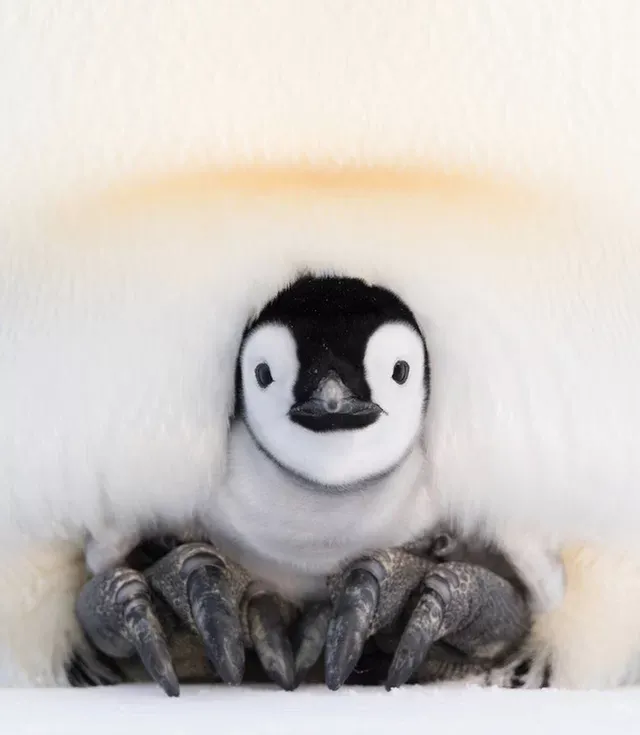How Do Emperor Penguin Dads Stop Their Eggs From Freezing?
They've become the stars of many a nature documentary and cartoon, beloved for their fluffiness and impeccable waddle. Yet, when it comes to breeding, you might say that emperor penguins have drawn the evolutionary short straw. As if life weren't already tough enough in the mostly frigid Antarctic landscape they inhabit, these birds also have to breed in the dead of winter, when they must shield their eggs from snow and roaring winds, lest the eggs turn into ice cubes.
Advertisement
This week's episode of BBC America's "Dynasties" follows a colony of emperor penguins (Aptenodytes forsteri) as they contend with this inhospitable climate to keep their fragile eggs alive.
The emperor is actually the only penguin species that follows the risky strategy of breeding solely in the winter, which they do in huge colonies of several thousand birds. While the female birds head out to sea for months to replenish themselves with fish after each one lays an enormous egg, the males stay behind and each incubate an egg as temperatures grow increasingly frigid on the flat sheet ice where they live. [In Photos: The Emperor Penguin's Beautiful and Extreme Breeding Season]
The reason for their wintertime breeding comes down to some very tight scheduling constraints. When several thousand hatchlings arrive in a penguin colony, they require tons of fish, squid and krill as sustenance. But that's available only in the springtime, when the vast stretches of frozen sea that separate emperor penguins from the ocean's edge melt and break apart.
And because incubating an egg takes around four months, "that means starting it in the winter, so the chick is then timed to hatch when maximum resources are available close by in the ocean," said Philip Trathan, head of conservation biology at the British Antarctic Survey. "If [penguins] were trekking over 200 kilometers [124 miles] of sea ice every foraging trip, they just wouldn't have time to do it," he told Live Science.
Saddled with the mammoth task of protecting their young against blizzards and subzero temperatures, emperor penguin dads have essentially been transformed by evolution into walking hot-water bottles.
For starters, the birds are almost completely covered in a dense layer of feathers that's several centimeters thick, which insulates their own bodies and their young. Like many penguin species, an emperor is also equipped with a flap of naked skin on its abdomen, called the "brood pouch," that protects the egg. A bird artfully balances an egg on its feet, presses it up against this bare skin and then covers the egg over with a fleecy fold of belly plumage that completely insulates the offspring from the frozen world outside.